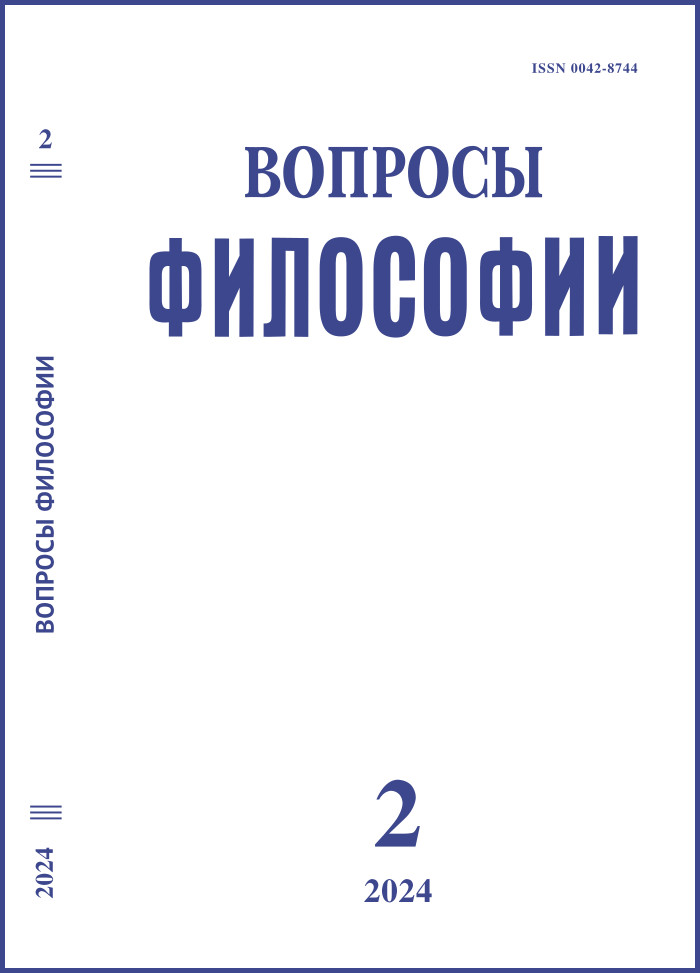Justification of Moral Duty in the Ethics of J.S. Mill
DOI:
https://doi.org/10.21146/0042-8744-2024-2-133-143Keywords:
morality, ethics, justification of moral duty, utilitarianism, Mill’s proof, J.S. Mill.Abstract
The paper addresses John Stuart Mills’s ethics and specifically deals with the following question: “Is there some kind of justification of moral duty that is exclusively characteristic of utilitarian ethics?” In order to answer it, the author proposes a reconstruction of Mill’s proof of the principle of utility from the fourth part of “Unilitarianism”, demonstrates its links with empiricist (inductivist) foundations of Mill’s moral philosophy, and shows that the second part of the proof allows two interpretations. First, it can be understood as proving the utilitarian normative program to the individual that already has recognized the moral assumption. In this case, we have to seek the justification of moral duty somewhere beyond Mill’s proof, in the passages of “Utilitarianism” about the interest of an agent to have benevolent people around him/her and about the role of opinions held by experientially privileged individuals in the process of choosing a way of life by other people. Second, it can be considered as simultaneously proving the rational character of moral duty and the necessity to understand it through the prism of utilitarianism. In the light of the first interpretation, Mill’s justification of moral duty resembles strategic egoism or intuitionism of Sidgwick’s type. In the light of the second, it is closer to the Kantian tradition in moral philosophy. But, at any rate, the wide range of possible justifications of moral duty encapsulated in the text of “Utilitarianism’” provides convincing evidence that utilitarian ethics is not connected with some exclusively utilitarian justification of moral duty.

